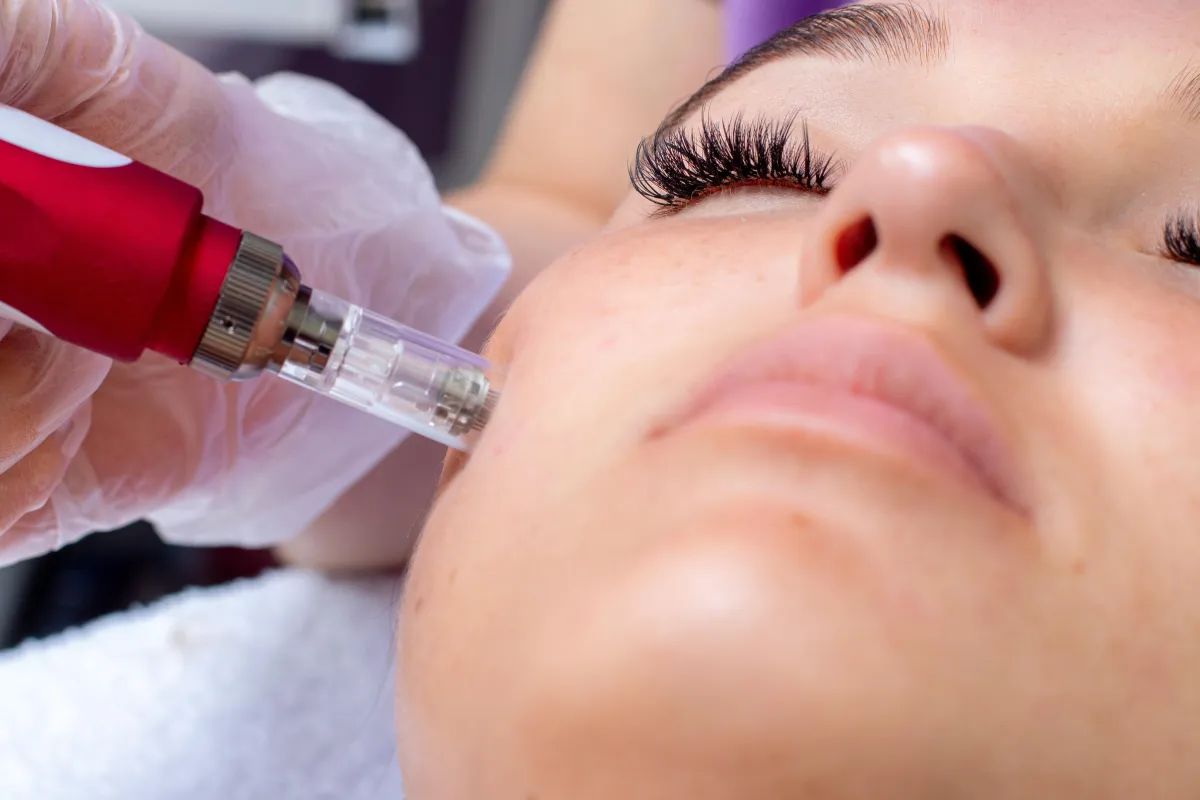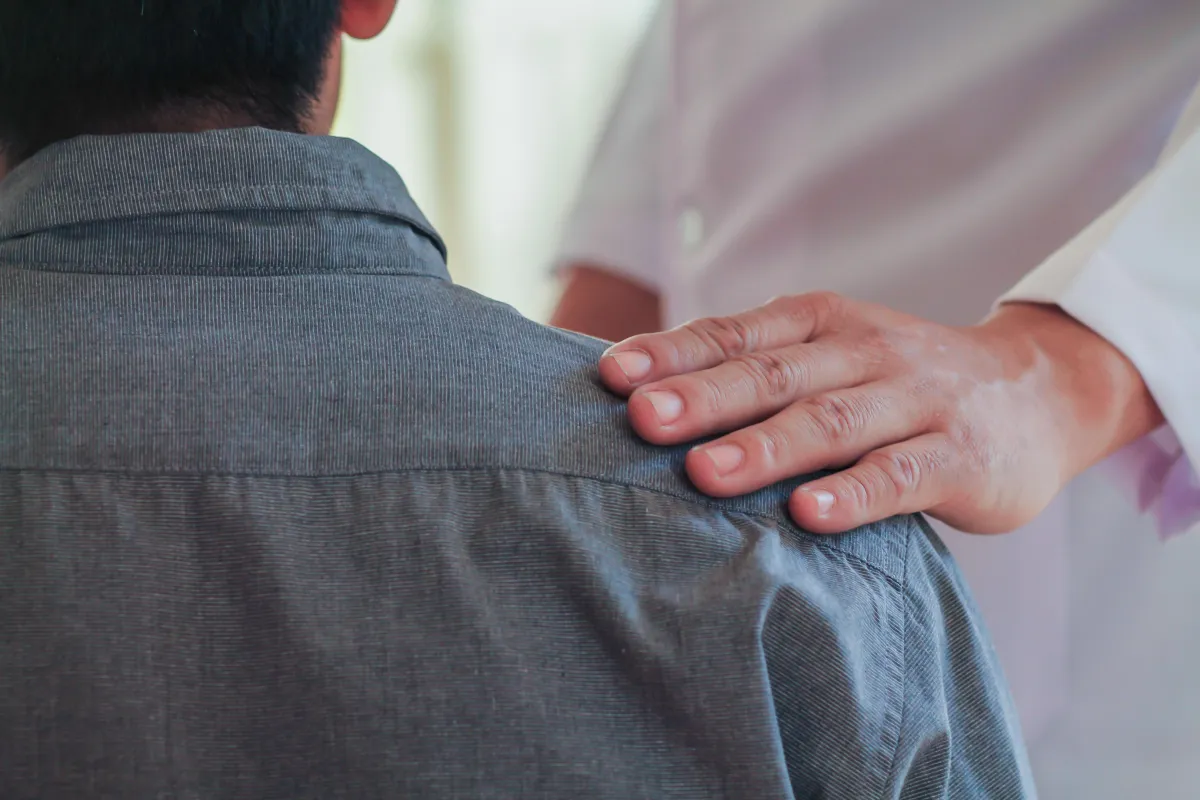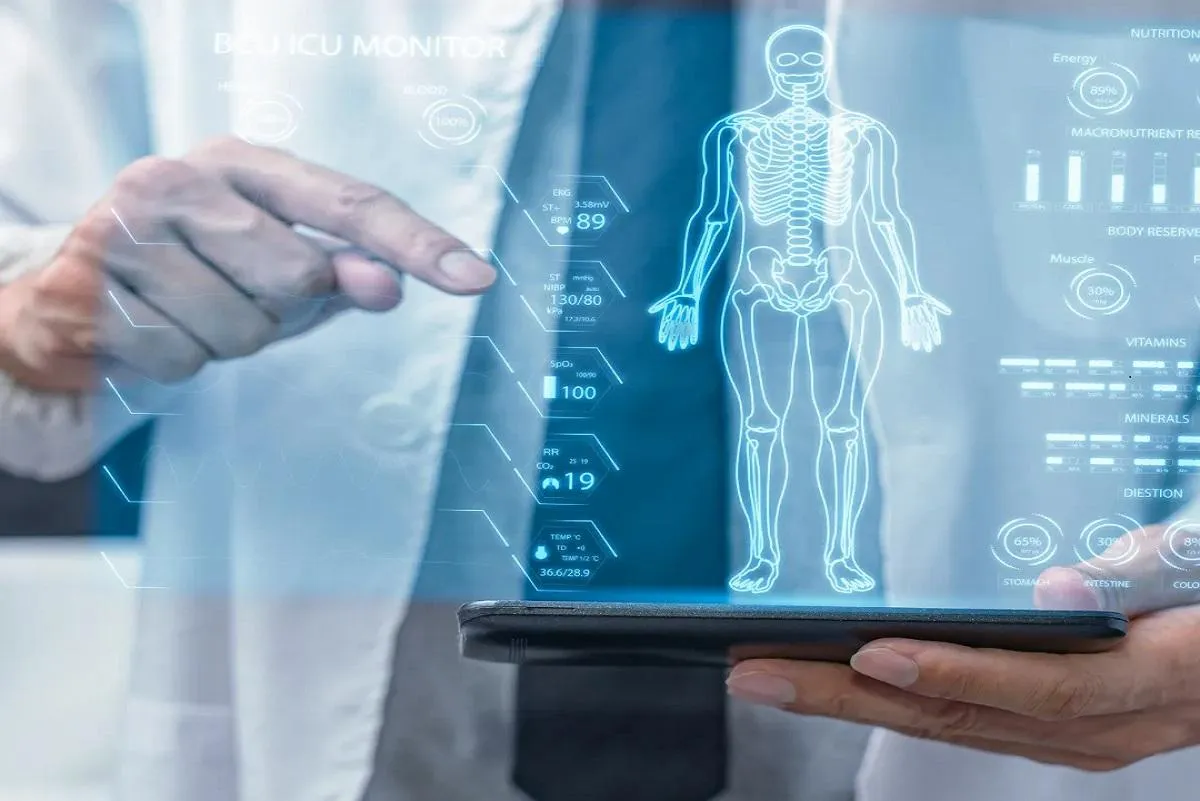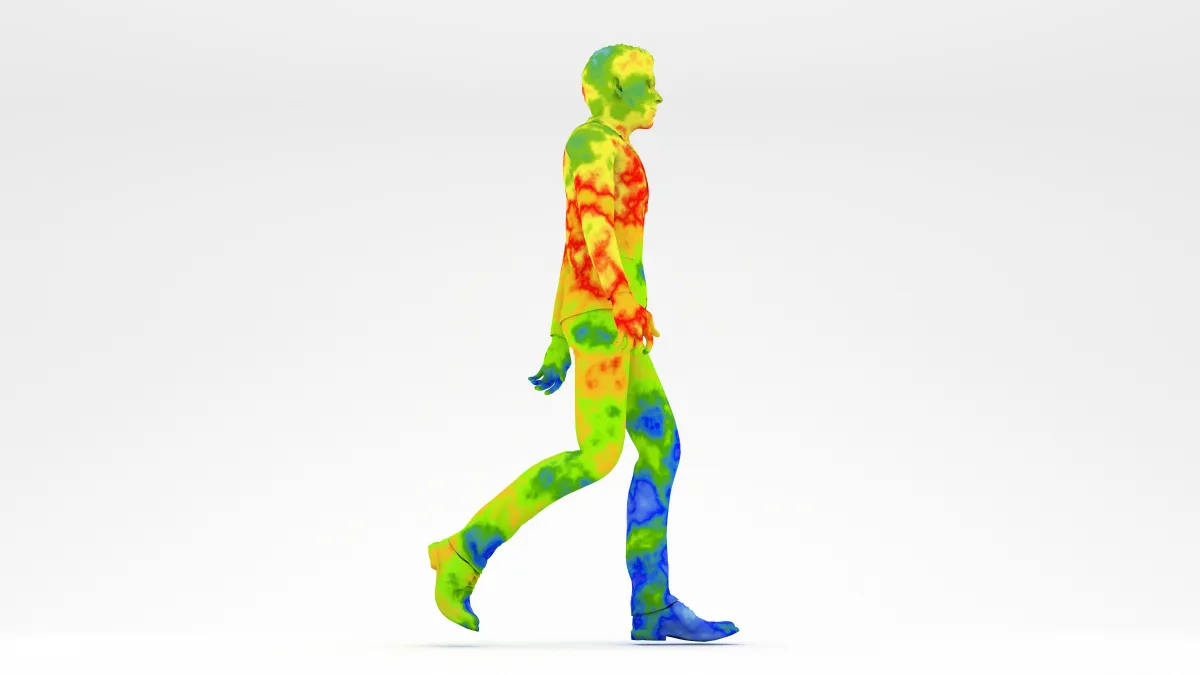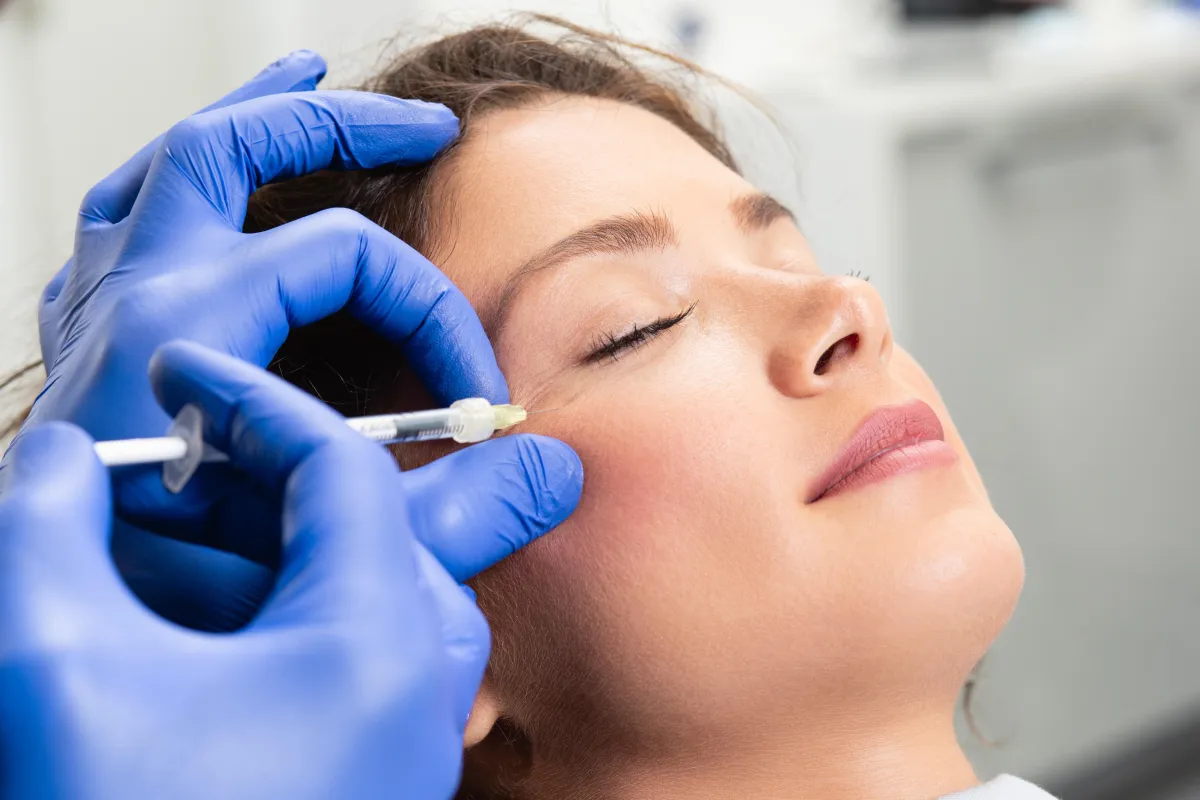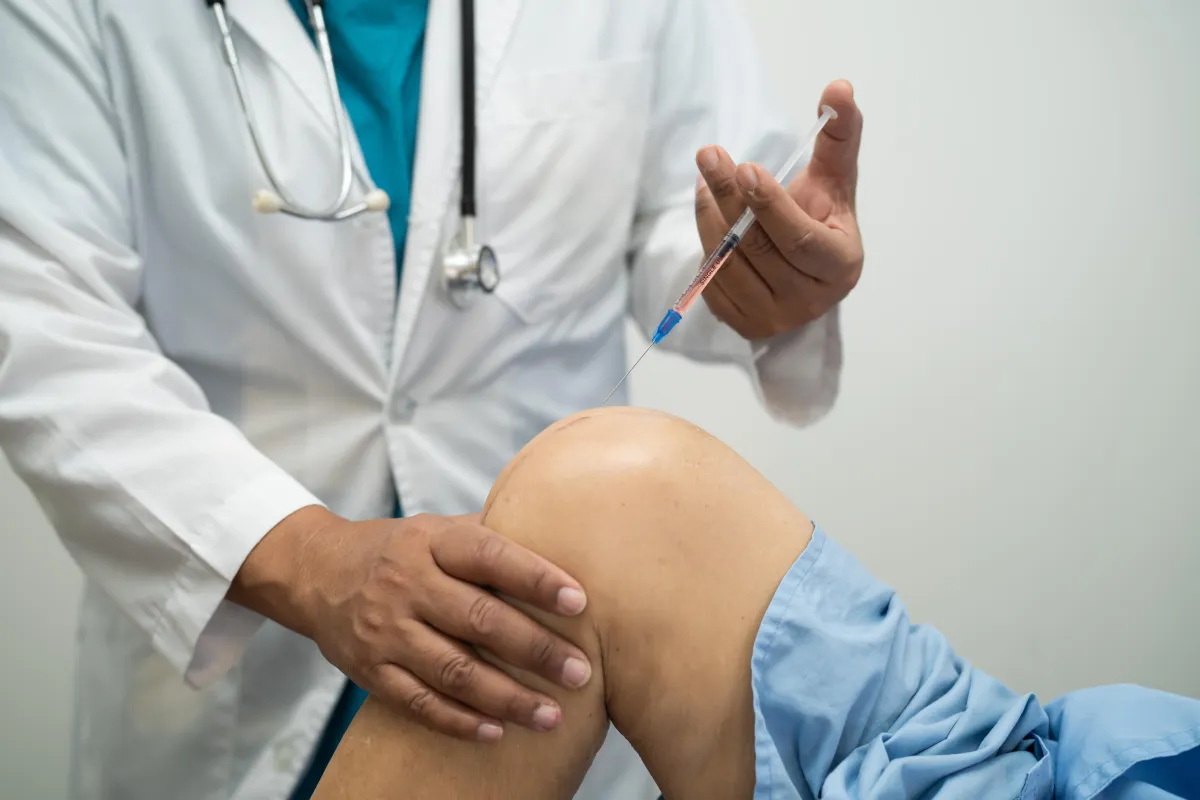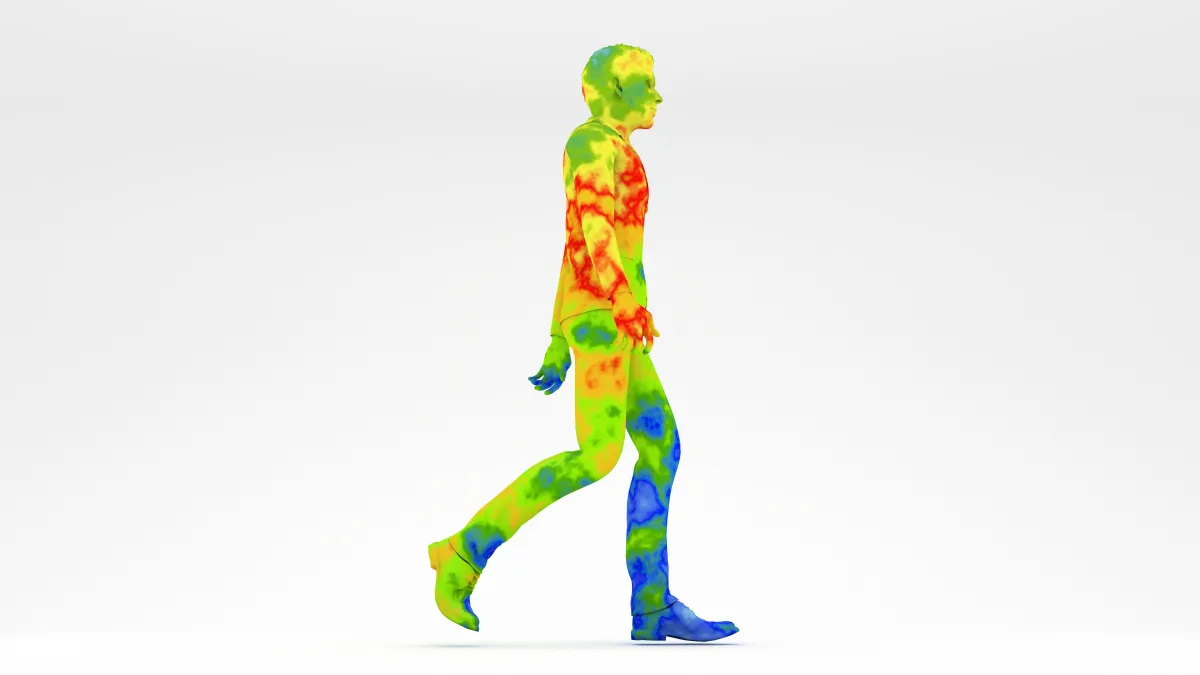Welcome to the Chambers Clinic Blog
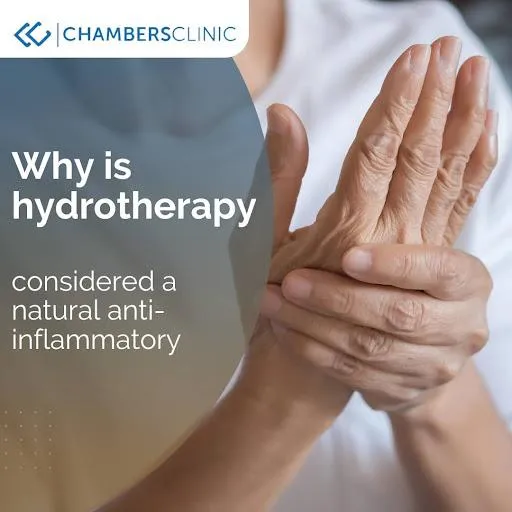
Why is hydrotherapy considered a natural anti-inflammatory
Why is hydrotherapy considered a natural anti-inflammatory?
Unlocking the Natural Anti-Inflammatory Power of Hydrotherapy at Chambers Clinic
In recent years, natural anti-inflammatory treatments have garnered increasing attention within the medical community.
Chambers Clinic champions constitutional hydrotherapy for its potent anti-inflammatory properties. Through water-based therapy, we effectively manage inflammation and chronic pain.
Here we delve into hydrotherapy's mechanisms, benefits, and applications as a natural solution for inflammation.
Understanding Hydrotherapy
Hydrotherapy, or water cure therapy, utilizes water's properties for healing and relaxation. Offered at Chambers Clinic, it's accessible and effective. Varying temperatures through water application helps to boost oxygenation of red blood cells, reduce inflammation, relaxes muscles, regulate the nervous system, and boost the immune system, while helping with proper function of the lymph system and detoxification.
The Mechanics of Hydrotherapy
Hydrotherapy utilizes temperature changes along with sine wave to trigger bodily responses. Warm towel applications helps to dilate blood vessels, enhancing circulation, especially to organs elimination that excrete waste (like the kidneys, liver, bowels and skin) and easing muscles. Conversely, cold water constricts vessels, reducing inflammation and pain, while also boosting oxygen absorption, red blood cell production, and white blood cell (immune) activity.
Alternating between hot towel applications and cold water towel applications as a therapy effectively manages inflammation and pain.
The Role of Hydrotherapy at Chambers Clinic
Constitutional hydrotherapy at Chambers Clinic is specially designed to optimize therapeutic outcomes.
The patient is essentially swaddled like you would a baby, and then hot water towel applications are applied followed by cold water towel applications, along with sine wave. The sine wave is adjusted to the patient’s tolerance, and repositioned at certain points in the treatment.
The patients experience a relaxing and calm environment with music and dim lighting to help regulate the nervous system even more.
Conditions Treated with Hydrotherapy
Hydrotherapy treats various medical conditions like arthritis, autoimmune conditions, upper respiratory infections like the cold and flu, IBS, IBD, PMS, infertility issues, and helping to reduce environmental burden from heavy metal toxicities and or to help treat Lyme’s disease, as well as sports injuries. It also helps with mood improvement and anxiety reduction. By targeting physical and psychological health, hydrotherapy offers holistic wellness.
Hydrotherapy as a Natural Anti-Inflammatory

Hydrotherapy taps into the body's natural response to temperature changes, aiding as a natural anti-inflammatory. Cold water constricts blood vessels, reducing swelling and discomfort, while warm rinse water promotes circulation and nutrient delivery, aiding recovery.
This holistic approach addresses both physical and psychological well-being.
Mechanisms of Action
Hydrotherapy works by targeting inflammation through different pathways. Cold water reduces blood flow, reducing blood sugar, increases excretion of carbon dioxide, and calming the sympathetic (fight or flight) nervous system, offering pain relief. Warm stone immersion boosts circulation, aiding tissue repair. Overall, hydrotherapy addresses both physical and mental well-being holistically.
Hormonal Regulation
Moreover, warm and cold elements hydrotherapy influences the secretion of hormones involved in inflammation and pain modulation. Cold water exposure stimulates the release of endorphins, neurotransmitters that act as natural rhythmic flow painkillers, offering relief from discomfort.
Warm water towel applications boosts oxytocin production, promoting bonding and relaxation. Cold water towel applications activates the parasympathetic (rest and digest) nervous system, reducing stress.
Cellular Response
Conversely, warm water towel applications upregulates anti-inflammatory cytokines, such as interleukin-10, promoting tissue repair and resolution of inflammation. By balancing the immune response, hydrotherapy facilitates the healing power process and alleviates symptoms associated with inflammatory conditions.
At the cellular level, hydrotherapy modulates immune cell activity and cytokine production, key factors in the inflammatory process. Cold water towel applications suppresses the activity of pro-inflammatory cytokines, such as interleukin-1β and tumor necrosis factor-alpha, reducing inflammation and tissue damage.
Hydrotherapy at Chambers Clinic: A Holistic Approach

At Chambers Clinic, we advocate for a holistic approach to health and wellness, integrating hydrotherapy into comprehensive treatment plans for various medical conditions. Our team of experienced therapists is committed to providing personalized care, addressing the unique needs and preferences of each patient. Through a combination of hydrotherapy, IV’s, supplementation, and lifestyle modifications (such as diet, exercise and sleep), we strive to optimize patient outcomes and improve quality of life.
Customized Treatment Plans
We understand that every individual responds differently to treatment, which is why we tailor hydrotherapy sessions to meet specific patient requirements. Whether managing chronic pain, autoimmune conditions, or seeking stress relief, our therapists design customized treatment plans to address diverse needs effectively.
By combining constitutional hydrotherapy with other therapeutic modalities, such as IV’s, supplementation, and diet and exercise therapies, we create comprehensive programs tailored to individual goals and preferences.
Patient-Centered Care
At Chambers Clinic, patient satisfaction and well-being are our top priorities. We strive to create a supportive and nurturing environment where patients feel empowered and valued. Our compassionate staff members are dedicated to providing personalized care, addressing patient concerns, and facilitating open communication.
Through education and guidance, we empower patients to take an active role in their health and wellness journey, promoting self-care practices and healthy lifestyle habits.
Benefits of Hydrotherapy

Constitutional Hydrotherapy offers a multitude of benefits beyond its anti-inflammatory properties, making it a versatile and valuable treatment modality for various health conditions.
Pain Management
Hydrotherapy offers significant pain relief, especially for chronic conditions like arthritis and fibromyalgia.
Its anti-inflammatory benefits can have immense effects on those dealing with chronic gout/pseudo-gout flares. Regular sessions can greatly improve pain management and quality of life for those with chronic pain.
Rehabilitation and Recovery
Constitutional Hydrotherapy aids in rehabilitating injuries by enhancing blood flow and tissue repair, hydrotherapy accelerates healing, aiding in quicker recovery and restoring independence.
Stress Reduction and Relaxation
Hydrotherapy not only benefits the body but also relaxes the mind, reducing stress and promoting well-being. The warm and cold water applications create a calming environment, soothing the mind.
These sessions provide a chance to escape daily stress, promoting physical and mental rejuvenation. Regular constitutional hydrotherapy can lower anxiety, uplift mood, and improve overall quality of life.
Improved Circulation and Immune Function
Constitutional Hydrotherapy stimulates blood circulation, which is essential for delivering oxygen and nutrients to cells throughout the body. By improving circulation, hydrotherapy enhances tissue oxygenation and accelerates the removal of metabolic waste products, promoting overall health and vitality.
Additionally, constitutional hydrotherapy boosts immune function by stimulating the production of white blood cells and enhancing the body's natural defense mechanisms. This helps protect against infections and illness, supporting long-term health and well-being.
Conclusion
Constitutional Hydrotherapy at Chambers Clinic offers natural relief from inflammation, pain, and various health conditions. Our tailored treatments and calming environment ensure effective outcomes and patient contentment.
Whether for chronic pain, autoimmune conditions, or overall well-being, constitutional hydrotherapy delivers valuable benefits. Experience its healing potential for improved health and vitality now.
Other Services
At Chamber's Clinic, we offer a variety of services to help you improve your health. We hope that you will give us a call to schedule an appointment and see how we can help you reach your health goals!
Some of our services include:
Is there a service that you are looking for that is not listed above? Book a call with us below to talk with us about your personal needs!
References and Articles
Extracellular vesicle-based therapy for amyotrophic lateral sclerosis
Amyotrophic lateral sclerosis (ALS) is a disease that causes the fast breakdown of motor neurons in the brain and spinal cord. These motor neurons are essential for controlling muscle movement, and their loss leads to disability. There are few treatments for ALS, so new methods to prevent further damage to motor neurons are urgently needed. One way to protect motor neurons could be by fixing the barrier between the blood and the central nervous system (CNS). This barrier helps to prevent harmful substances in the blood from entering the CNS and causing damage. In ALS, this barrier is not working properly, which may lead to the motor neuron damage.Researchers have found that certain cells from human bone marrow, called endothelial progenitor cells (hBM-EPCs), may help repair this barrier. These cells can release factors that help heal damaged cells in the barrier. Additionally, they produce small particles called extracellular vesicles (EVs) that carry helpful substances, which can further assist in fixing the damaged cells. In a laboratory study, these EVs were taken up by mouse brain cells, and the damage to these cells was significantly reduced. However, when a molecule called β1 integrin was blocked, the EVs could not be taken up by the cells. This research suggests that hBM-EPCs, and specifically the EVs they produce, may have potential as a new treatment for ALS by repairing the damaged blood-CNS-barrier.
Read more here: https://www.ncbi.nlm.nih.gov/pmc/articles/PMC8057104/https://www.ncbi.nlm.nih.gov/pmc/articles/PMC8057104/
The combination of autologous mesenchymal stem cell-derived exosomes and neurotrophic factors as an intervention for amyotrophic lateral sclerosis
Amyotrophic lateral sclerosis (ALS) is a disease that causes the gradual breakdown of motor neurons, leading to high mortality. Currently, only two medications, Riluzole and Edaravone, are approved for ALS treatment, but they can cause serious side effects like liver and kidney damage. As of now, there is no effective treatment for ALS.Researchers are looking into using exosomes, mesenchymal stem cells, and neurotrophic factors to help treat ALS. In this analysis, we'll discuss how these elements could be combined to potentially create an effective treatment for the disease.Mesenchymal stem cells can help control the immune system, reduce oxidative stress, encourage nerve cell regeneration, and transform into nerve and glial cells. Exosomes from these stem cells also have positive effects, preventing the abnormal development of the stem cells.Neurotrophic factors, on the other hand, can help control inflammation, stimulate nerve repair, and aid in the recovery of nerve function. By combining exosomes from mesenchymal stem cells with neurotrophic factors, researchers believe this approach could potentially be an effective treatment for ALS.
Read More Here: https://pubmed.ncbi.nlm.nih.gov/35278658/
Emerging role of mesenchymal stromal cells (MSCs)-derived exosome in neurodegeneration-associated conditions: a groundbreaking cell-free approach
Many studies suggest that the positive effects of mesenchymal stromal cells (MSCs) come from the release of soluble substances, making them a possible option for repairing damaged tissue. MSC-derived exosomes, tiny particles released by these cells, have great potential for treating neurodegenerative diseases due to their unique immune and regenerative properties.Using exosomes instead of directly administering MSCs can avoid certain issues, such as tumor formation or limited movement to brain tissue. Importantly, these exosomes can pass through the blood-brain barrier and deliver their contents (like proteins, miRNAs, lipids, and mRNA) to damaged brain tissue. These substances can affect various processes in neurons, oligodendrocytes, and astrocytes.Research has shown that administering MSC-derived exosomes in animals with neurodegenerative diseases can lead to positive results by supporting the blood-brain barrier, promoting the growth of blood vessels, reducing inflammation, and encouraging the growth of new nerve cells. In this review, we will provide an overview of the therapeutic benefits of MSC-derived exosome therapy for acute and chronic neurodegenerative diseases and explain the mechanisms behind these positive effects.
Learn More Here: https://stemcellres.biomedcentral.com/articles/10.1186/s13287-022-03122-5
Intra-Articular Injections of Mesenchymal Stem Cell Exosomes and Hyaluronic Acid Improve Structural and Mechanical Properties of Repaired Cartilage in a Rabbit Model
In a study comparing treatments for tissue defects, exosomes combined with hyaluronic acid (HA) showed significant improvements in appearance and tissue quality at both 6 and 12 weeks compared to defects treated with just HA. Additionally, the defects treated with exosomes and HA showed better mechanical properties, with higher levels of stiffness and elasticity (Young's moduli) at both time points. By 12 weeks, the repaired tissue in defects treated with exosomes and HA was mostly made up of hyaline cartilage, which is mechanically and structurally superior to that of the HA-treated defects. The mechanical properties of the repaired tissue were similar to that of the surrounding healthy cartilage. In contrast, defects treated with HA alone showed some repair at 6 weeks, but this did not last, as shown by a decline in tissue quality and no improvement in mechanical properties from 6 to 12 weeks.
Read More Here: https://pubmed.ncbi.nlm.nih.gov/32302651/
Recent Advances in the Application of Mesenchymal Stem Cell-Derived Exosomes for Cardiovascular and Neurodegenerative Disease Therapies
Exosomes are tiny particles that occur naturally in the body and are released and taken in by nearly all cells. They can move between cells and carry various substances related to their origin and function, such as proteins, lipids, and RNAs. Exosomes play a crucial role in cell communication, making them useful for delivering different types of drugs throughout the body. They are widespread in the circulatory system and can reach injury or disease sites by passing through biological barriers.Due to their unique structure and rich content, exosomes can be used for diagnosing and treating diseases. Exosomes derived from mesenchymal stem cells (MSCs-Exo) have the same functions as MSCs, like repairing and regenerating tissues, reducing inflammation, and regulating the immune system. This makes MSCs-Exo a natural drug delivery carrier with therapeutic effects, and they are increasingly used in treating cardiovascular and neurodegenerative diseases. In this article, we review the research progress of MSCs-Exo as drug delivery vehicles and their use in various drug deliveries, offering ideas and references for the study of MSCs-Exo in recent years.
Read More Here: https://www.ncbi.nlm.nih.gov/pmc/articles/PMC8949563/.
Therapeutic utility of mesenchymal stromal cell (MSC)-based approaches in chronic neurodegeneration: a glimpse into underlying mechanisms, current status, and prospects
Recently, mesenchymal stromal cell (MSC) therapy has become a highly regarded treatment option for neurodegenerative diseases. Many studies in animal models and some clinical trials have demonstrated the safety, feasibility, and effectiveness of MSC transplantation in conditions such as Alzheimer's disease (AD), Parkinson's disease (PD), Amyotrophic lateral sclerosis (ALS), and Huntington's disease (HD). The beneficial effects of MSC therapy are largely due to the secretion of immunomodulatory factors and various neurotrophic factors (NTFs), such as glial cell line-derived neurotrophic factor (GDNF) and brain-derived neurotrophic factor (BDNF). MSC therapy helps to degrade pathogenic protein aggregates, which are a hallmark of chronic neurodegenerative diseases, by secreting protein-degrading molecules. This process reduces neuroinflammation and provides neuroprotection, leading to cognitive and functional recovery and alleviation of disease symptoms. There is also evidence of MSC differentiation into neural-like cells in vivo. This article focuses on the therapeutic benefits of MSCs and their derivative exosomes as a cutting-edge, cell-free approach to treating AD, HD, PD, and ALS. Additionally, it highlights novel methods to enhance the therapeutic benefits of MSCs in these disorders, particularly through the administration of preconditioned MSCs.
Read more here: https://cmbl.biomedcentral.com/articles/10.1186/s11658-022-00359-z
Mesenchymal Stem Cells and MSCs-Derived Extracellular Vesicles in Infectious Diseases: From Basic Research to Clinical Practice
Mesenchymal stem cells (MSCs) have garnered significant attention in the field of regenerative medicine due to their therapeutic potential and unique properties. The ongoing COVID-19 pandemic has further emphasized the need for cell therapy in infectious diseases. This review aims to summarize the current scientific data on the use of MSCs and MSC-derived extracellular vesicles (MSC-EVs) in the treatment of infectious diseases. MSCs and MSC-EVs have been found to have immunomodulatory, anti-inflammatory, and antibacterial effects, as well as the ability to promote tissue regeneration and restoration of the epithelium. The use of MSC-EVs as a cell-free treatment strategy offers a promising solution to the safety concerns associated with cell therapy and has shown increased effectiveness in preclinical studies. This review presents both experimental data and clinical trials that support the use of MSCs and MSC-EVs in the treatment of infectious diseases, particularly in combination with antiviral drugs. The use of MSC-derived EVs represents a more promising cell-free treatment option, with high therapeutic potential demonstrated in preclinical studies.
Read More Here: https://www.mdpi.com/2306-5354/9/11/662
Mesenchymal stem cells for the treatment of neurodegenerative disease
Mesenchymal stem cells (MSCs) have gained attention as a potential tool for cell therapy and are currently being tested in FDA-approved clinical trials for a range of disorders, including myocardial infarction, stroke, meniscus injury, limb ischemia, graft-versus-host disease, and autoimmune disorders. Preclinical studies have shown MSCs to be effective in treating these and many other conditions. There is growing interest in using MSCs to treat neurodegenerative diseases, especially those that are fatal and difficult to treat, such as Huntington's disease and Amyotrophic lateral sclerosis. The regenerative approach for neurological diseases using MSCs involves cell therapies in which cells are delivered through intracerebral or intrathecal injection. Upon transplantation into the brain, MSCs can enhance endogenous neuronal growth, reduce apoptosis, limit free radical levels, enhance synaptic connections between damaged neurons, and regulate inflammation through paracrine actions. MSCs have been shown to promote functional recovery by producing trophic factors that support the survival and regeneration of host neurons. These therapies can either leverage the natural trophic support of MSCs or augment it through the delivery of growth factors, such as brain-derived neurotrophic factor or glial-derived neurotrophic factor, using genetically engineered MSCs as delivery vehicles. Clinical trials for MSC injection into the central nervous system to treat traumatic brain injury and stroke are ongoing. This article discusses the current data supporting the use of MSC-based cellular therapies for the treatment of neurodegenerative disorders.
Therapeutic potential of mesenchymal stem cells and their exosomes in severe novel coronavirus disease 2019 (COVID-19) cases
The novel coronavirus severe acute respiratory syndrome coronavirus 2 (SARS-CoV-2) is responsible for the global pandemic of coronavirus disease 2019 (COVID-19). The spread of the virus has had far-reaching impacts, including activity restrictions, economic disruption, and a strain on healthcare systems. Severe SARS-CoV-2 infection can trigger a cytokine storm, leading to serious health conditions such as acute respiratory distress syndrome (ARDS) and multiple organ failure, which require prompt treatment. Mesenchymal stem cells (MSCs) and their exosomes have been shown to have anti-inflammatory effects on immune cells, such as inducing anti-inflammatory macrophages, regulatory T and B cells, and regulatory dendritic cells, and inactivating T cells. This makes them a promising candidate for treating severe cases of COVID-19. This review provides background on severe cases of COVID-19, an overview of the mechanisms of action of MSCs and their exosomes, and a discussion of basic and clinical studies on the use of MSCs and exosomes for influenza-induced ARDS. Finally, it highlights the potential of MSC and exosome therapy for severe cases of COVID-19, based on clinical trials of MSCs (33 trials) and exosomes (1 trial) registered in 13 countries on ClinicalTrials.gov.
Read More Here: https://inflammregen.biomedcentral.com/articles/10.1186/s41232-020-00121-y
Efficacy and Safety of EXOSOME-MSC Therapy to Reduce Hyper-inflammation In Moderate COVID-19 Patients (EXOMSC-COV19)
In COVID-19 infections caused by the Severe acute respiratory syndrome coronavirus 2 (SARS-CoV-2), there is a disruption of the immune system response that leads to cytokine storm syndrome. SARS-CoV-2 acts like a hijacker, sabotaging communication between cells so that the immune system, such as T-cells, attacks not only infected cells but also healthy cells. This disruption results in hyper-inflammation, causing damage to various organs and contributing to the high mortality rate among COVID-19 patients.Exosomes are small vesicles, measuring 30-100 nanometers, that originate from within cells and serve as a means of communication with other cells. They are transport containers that contain bioactive cargo, such as proteins, genetic material, and various other molecules. These containers move from the cells of origin and flow through blood vessels or other body fluids to reach target cells, where they penetrate the cell membrane and act on various organelles within the cell.All cell types can produce exosomes, but their contents differentiate them. The exosome produced by mesenchymal stem cells (MSCs) contains bioactive cargo derived from MSCs, such as anti-inflammatory cytokines, growth factors, messenger RNA (mRNA), and micro RNA (miRNA). The target cells are immune system cells, infected cells, and progenitor cells from infected organs. On immune cells, the anti-inflammatory cytokines function as immunomodulators to relieve hyper-inflammation. In infected cells, the miRNAs work to prevent viral replication by inhibiting the expression of SARS-CoV-2 virus RNA (viral mRNA silencing and degradation). In lung progenitor cells and other infected organs, the growth factors stimulate protein synthesis processes that support organ regeneration.This study is a multi-center, double-blind, randomized controlled trial (RCT) with two arms: an intervention arm and a control arm. The EXOSOME-MSC will be tested as an adjuvant on top of standard COVID-19 drugs. Participants will receive two intravenous injections, on day 1 and day 7, during the 14-day study period.
Read more here: https://clinicaltrials.gov/ct2/show/NCT05216562
Immune Modulation by Exosomes in COVID-19 (IMECOV19)
In critically ill COVID-19 patients, hyperinflammation and progressive lung fibrosis may lead to lung failure and the need for extracorporeal oxygenation. This study will investigate the anti-inflammatory and immune-modulatory effects of mesenchymal stem cells through whole blood stimulation experiments using stem cell-derived exosomes. The preparations of exosomes have been characterized by their miRNA and protein expression patterns and have shown potential for tissue regeneration.The hypothesis of this study is that mesenchymal stem cell-derived exosomes will reduce inflammation and promote anti-fibrotic pathways.
Read more here: https://clinicaltrials.gov/ct2/show/NCT05191381
Mesenchymal stem cell-based therapy and exosomes in COVID-19: current trends and prospects
Novel coronavirus disease 2019 (COVID-19) is caused by the severe acute respiratory syndrome coronavirus-2 virus. COVID-19 triggers an excessive immune response, resulting in a cytokine storm and acute respiratory distress syndrome, which are the leading cause of COVID-19-related deaths and complications. Currently, there are no therapies that can effectively address the exacerbated immune response or cytokine storm associated with COVID-19. Mesenchymal stem cells (MSCs), through their immunomodulatory and regenerative properties, which are largely mediated through their paracrine effect and production of extracellular vesicles, show therapeutic potential in many autoimmune, inflammatory, and degenerative diseases. In this paper, we review clinical studies on the use of MSCs for COVID-19 treatment, including the positive effects of MSCs on the pathophysiology of COVID-19 and the modulation of the cytokine storm. We summarize ongoing clinical trial designs, cell sources, doses, administration methods, and populations, and discuss the paracrine mode of benefit. We also provide suggestions for enhancing MSC-based therapies, including genetic engineering, strategies for modifying cell surfaces, nanotechnology applications, and combination therapies.
Read More Here: https://stemcellres.biomedcentral.com/articles/10.1186/s13287-021-02542-z
Mesenchymal stem cell treatment for COVID-19
Severe acute respiratory syndrome coronavirus 2 (SARS-CoV-2) infection has caused a global pandemic since late 2019 that resulted in more than 360 million population infection. Among them, less than 7% of infected individuals develop severe or critical illness. Mass vaccination has been carried out, but reinfection and vaccine breakthrough cases still occur. Besides supportive and antiviral medications, much attention has been paid in immunotherapies that aim at reducing pathological changes in the lungs. Mesenchymal stem cells (MSCs) is used as an option because of their immunomodulatory, anti-inflammatory, and regenerative properties. As of January 16, 2022, when ClinicalTrials.gov was searched for “Mesenchymal stem cells and COVID-19,” over 80 clinical trials were registered. MSC therapy was found to be safe and some effective in preclinical and clinical studies. Here, we summarize the major pathological characteristics of COVID-19 and provide scientific and rational evidence for the safety and possible effectiveness of MSCs in COVID-19 treatment.
Read more here: https://www.thelancet.com/journals/ebiom/article/PIIS2352-3964(22)00104-9/fulltext
Cell Therapy for Neurological Disorders: The Perspective of Promising Cells
Neurological disorders are big public health challenges that are afflicting hundreds of millions of people around the world. Although many conventional pharmacological therapies have been tested in patients, their therapeutic efficacies to alleviate their symptoms and slow down the course of the diseases are usually limited. Cell therapy has attracted the interest of many researchers in the last several decades and has brought new hope for treating neurological disorders. Moreover, numerous studies have shown promising results. However, none of the studies has led to a promising therapy for patients with neurological disorders, despite the ongoing and completed clinical trials. There are many factors that may affect the outcome of cell therapy for neurological disorders due to the complexity of the nervous system, especially cell types for transplantation and the specific disease for treatment. This paper provides a review of the various cell types from humans that may be clinically used for neurological disorders, based on their characteristics and current progress in related studies.
Read more here: https://www.ncbi.nlm.nih.gov/pmc/articles/PMC8614777/
Extracellular Vesicles in Regenerative Medicine: Potentials and Challenges
The ultimate goal of regenerative medicine is to regain or restore the damaged or lost function of tissues and organs. Several therapeutic strategies are currently being explored to achieve this goal. From the point of view of regenerative medicine, extracellular vesicles (EVs) are exceptionally attractive due to the fact that they can overcome the limitations faced by many cell therapies and can be engineered according to their purpose through various technical modifications. EVs are biological nanoscale vesicles naturally secreted by all forms of living organisms, including prokaryotes and eukaryotes, and act as vehicles of communication between cells and their surrounding environment. Over the past decade, EVs have emerged as a new therapeutic agent for various diseases and conditions owing to their multifaceted biological functions. This is reflected by the number of publications on this subject found in the Web of Science database, which currently exceeds 12,300, over 85% of which were published within the last decade, demonstrating the increasing global trends of this innovative field. The reviews collected in this special issue provide an overview of the different approaches being explored in the use of EVs for regenerative medicine.
Read more here: https://www.ncbi.nlm.nih.gov/pmc/articles/PMC8300067/
TESTIMONIALS

The best place to receive actual care! If you’re tired of doctors practicing on you, come to Chambers Clinic and get true care—both preventative and healing! Dr. Chambers is an incredible Doctor. Really listens and cares about his patients and comes up with the best treatment for your lifestyle. Awesome people, Awesome staff! Go here. The way a doctor should be.
Melissa M
Regular Patient
A year ago I have suffered severe pain due to arthritis in my neck. I first tried a local chiropractor for 3 months with absolutely no results, just more pain. I made an appointment with Doctor Chambers finally, and he had me get an MRI. ...he discovered the inflamed nerve irritated by my degenerating bones, and recommended a treatment. I've had 2 treatments now (injecting platelets into the target area) and the pain and mobility is 80% better. The knowledge Doctor Chambers has and shared far exceeds anybody else I have talked to so far. His staff is visibly caring, and the facility gives off a feeling of gentle healing. It has a good energy. Chambers Clinic offers many services and based on what I've experienced and seen, it is well worth the visit for any number of ailments, or even just to boost your health. I cannot give 10 stars, so I'll have to settle with a five star review.
Steve S
Regular Patient
Chambers clinic is truly one of a kind one stop shopping for all of your health care needs! As an ICU nurse (retired), I have truly been returned to vibrant health and now cancer free thanks to the effective treatment (non-toxic) modalities implemented under the stellar guide and of Dr Jake Psenka
Maureen D
Regular Patient
I was sick constantly for 20 years. Conventional medicine seemed to hurt more than help. I was referred to Chambers Clinic and began my journey to health. I’m now 75 and in the best health I’ve had in years. I recommend chambers to anyone that needs to be their best.
Rex D
Regular Patient
CONTACT US
Phone: (480) 389-3265
Fax: (866) 869-0129
Text:(480) 571-0794
20801 N Scottsdale Rd., Suite 205
Scottsdale, AZ 85255
info@chambersclinic.com




